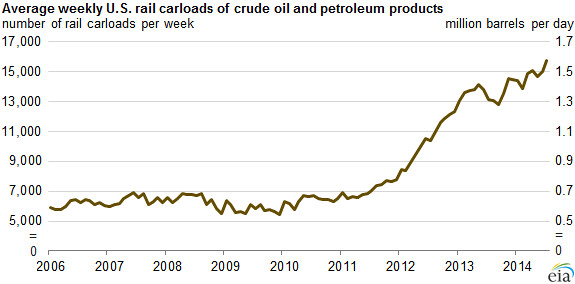
A silent conflict wages in northwest British Columbia, the place the bullets fly in the type of piercing spin doctored media pitches, the place the mortar shells are lobbed in the form of unwelcomed industrial development, and where the rules of engagement are manipulated by the dominant drive to go well with a moneyed credo. But this warfare is quickly shedding its silence.
Like all wars, allegiances can make for strange bedfellows and at times the lines of individual participation can turn out to be murky. In danger are the ancestral lands of First Nations, the fragile marine and land primarily based ecology, and the potential economic salvation of a whole region that suffers from sparse financial opportunities. No matter who will be victorious in this struggle, the result will inevitably imply big losses for those not so fortunate.
In varied phases of proposal and approval, northwest British Columbia has the dubious honor of being dwelling to one among the best concentrations of proposed mining, resource extraction, pipeline, and different industrial projects in Canada. Formal pointers to receive acceptable licensing by competent authorities are being adopted by the proponents of those behemoth projects, nevertheless, excluded from the planning course of are the aboriginal peoples who’ve settled these lands for more than ten thousand years.
Some would possibly discover it tough to grasp any resistance to the billions upon billions of dollars in proposed investment and the thousands of non permanent and everlasting nicely paid jobs that can be created with the development and operation of these projects. For some, the timing is impeccable, with a struggling financial system, high unemployment, unrecoverable enterprise losses, and a dwindling inhabitants plaguing your complete area. Also for some, it is equally confusing why, with aboriginal unemployment operating eight to ten times higher than the non-aboriginal population, the assorted Chiefs and Councils and Hereditary Chiefs would not be actively soliciting these megaprojects, moderately than impeding them.
The latest transfer to regulatory approval is the Northern Gateway Pipeline proposed by Enbridge which, if authorized, would see a 1200 kilometer twin pipeline system constructed between the Bruderheim, Alberta space and the Pacific Ocean at Kitimat, British Columbia. A 36 inch pipe would push 525,000 barrels of tar sands oil per day westward to Kitimat to be loaded onto ships destined for overseas markets, principally these in Asia. A 20 inch pipe would ship 193,000 barrels of condensate per day eastward back to Alberta’s Industrial Heartland space north of Edmonton, the location of Enbridge’s Bruderheim refinery.
Condensate is an additive blended with heavier oil which permits the oil to circulation simpler within the pipeline. It’s readily available in Asia. The plan calls for condensate to be offloaded from ships arriving from Asia at a yet-to-be-constructed facility in Kitimat, and then having those same ships reloaded with the arriving oil from Alberta. Sporting a 5.5 billion greenback worth tag, this venture may have mammoth positive monetary benefits to the numerous communities alongside the proposed buried pipeline footprint in Alberta and British Columbia.
With the recent Gulf of Mexico travesty and vivid recollections of the Exxon Valdez in 1989, a coalition of environmental teams, concerned residents, business homeowners, municipal governments, provincial governments, and First Nations have all spoken publically of their views. Some have minor considerations. Some welcome the monetary affect. Some are useless set opposed, for a wide number of causes.
For many in northwest British Columbia, the opposition to the Northern Gateway Pipeline falls underneath two most important categories, the actual and potential adverse influence on lands and water, and the perceived exclusion of First Nations enter. Enbridge refutes these factors of contentions, claiming to have redundant fail safes in place to ensure operational security, and says they welcome input addressing First Nations concerns.
Aboriginal and non-aboriginal groups are extremely concerned in regards to the catastrophe potential on Douglas Channel, the waterway inlet leading from the Pacific Ocean into Kitimat. With a projected 220 ship calls per 12 months being added to this fragile ecosystem, fears run rampant of an Exxon Valdez sized disaster ready to happen. From the Prince William Sound space of Alaska, now we have discovered that recovery from the pollution and havoc of an oil spill will final not less than a long time. Perhaps longer. And British Petroleum’s troubles within the Gulf of Mexico only add to the ammunition for these groups to use in opposition to Enbridge.
What many in Canada could also be shocked to study is simply how a lot further forward the aboriginal people in northwest British Columbia are than in every other a part of the nation, a minimum of by way of being recognized with self government. In fact, the Nisga’a Nation just celebrated the 10 year anniversary of the signing of their landmark treaty. The byproduct of this is that aboriginals are organized and can mount significant opposition to actions they feel are infractions on ancestral lands and rights.
Current public opinion polls, if they’re to be believed, present robust grassroots support for opponents to the Northern Gateway Pipeline.
Historical past is a prolific professor and an all-understanding oracle. With provincial governments actively selling this mission, with the billions in profits driving a powerful corporate promoter comparable to Enbridge, and with the final inhabitants in the world screaming for effectively paying jobs to substitute those they lost, one doesn’t want the most recent in crystal ball know-how to see that the money shall prevail.
And that is my take.
漏 2010 by Curtis Sagmeister. All Rights Reserved.


